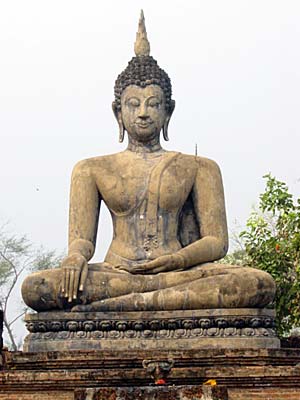BQ1-9800 Buddhism.
251-799 History
840-999 Biography
860-939 Gautama Buddha
1001-1045 Buddhist Literature
1100-3340 Tripitaka (Canonical Literature)
4061-4570 Doctrinal and Systematics Buddhism
4620-4890 Buddhist Pantheon
4911-5720 Practice of Buddhism, Forms of Worship
5851-5899 Benevolent Work
5901-5975 Missionary Work
6001-6388 Monasticism
7001-9800 Modifications, Schools, etc.
“Buddhism in its multiple forms acknowledges the radical insufficiency of this shifting world. It teaches a path by which men, in a devout and confident spirit, can either reach a state of absolute freedom or attain supreme enlightenment by their own efforts or by higher assistance.”
Nostra Aetate #2
(Nostra Aetate (Latin: In our Age) is the Declaration on the Relation of the Church with Non-Christian Religions of the Second Vatican Council. Passed by a vote of 2,221 to 88 of the assembled bishops, this declaration was promulgated on October 28, 1965, by Pope Paul VI)
"Even within the same religion, there may be a divergence of opinion about sacred writings. The branch of Buddhism known as Theravada accepts only the Tripitaka (Three Baskets) of early Pali writings, whereas the Manayanas' sutras represent many times the length of the Christian Bible."
From Catholic Update, July, 2000.
Also check in LibrarySearch.
Buddhism – the religious and philosophical system founded by the Buddha Gautama, teaching that all human sorrows arise from desire and can be eradicated by following the disciplines of his eightfold path.
Source: Shorter Oxford English Dictionary
 Encyclopedia of Buddhism
Encyclopedia of Buddhism
 The Religious traditions of Asia
by
The Religious traditions of Asia
by
 Historical Dictonary of Buddhism
Historical Dictonary of Buddhism
 Encyclopedia of Buddhism / Edward A. Irons.
Encyclopedia of Buddhism / Edward A. Irons.
 The A to Z of Buddhism / Charles S. Prebish.
The A to Z of Buddhism / Charles S. Prebish.